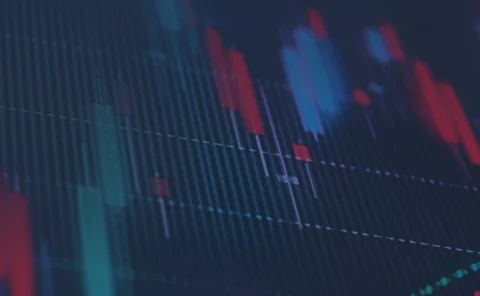Payments
Liquidity risk up 163% at Ice Clear Credit in Q4
Rate hike expectations led to the highest level on record of contributions to the CCP’s default fund
Op risk data: Allianz dealt a $4bn blow for not-so-Alpha Funds
Also: Credit Suisse cops two cartel shops; banks get slapped in gender pay gap. Data by ORX News
Russia’s foreign currency debt pile at risk of default
Sanctions could block coupon payments on $200bn of externally held foreign currency bonds
New GFXC chair aims to keep up reform on last look
SNB’s Andrea Maechler urges more liquidity providers and trading venues to address hold times
Liquidity risk rose at most CCPs in Q3
JSCC, CME, Ice and Eurex among those that revised their VM estimates
OCC member default fund contributions climb 11%
CCP's skin in the game up almost 5%
JSCC member received $3bn cash call in Q3
The CCP revised its estimate of the worst-case payment obligation that would have to be met should one of its participants collapse
One NSCC member paid record $40bn to cover dues in Q3
The cash call was 141% larger than the previous quarter
Source of systemic risk varies by region
European, Canadian and UK banks are too big to fail because of their cross-border activities, Chinese and Japanese banks because of their size
Global banks grow systemic footprint
Nine out of the 12 G-Sib indicators increased in 2020
Stable mates: the interoperability of cryptocurrencies
Why central bank reserves could be a better option for backing stablecoins than Treasuries
Neural networks show fewer false positives on bad loans – study
Machine learning method edges regression techniques in linking nonlinearities among delinquent borrowers
NSCC caught $5 billion short in June
Worst-case losses would have wiped out the CCP’s available liquid resources on two separate days in Q2
Retail payments and financial inclusion in Latin America and the Caribbean: identifying gaps and opportunities
The payment aspects of financial inclusion (PAFI) framework, set up by the Committee on Payments and Market Infrastructures and the World Bank in 2016, recommends a set of actions to spur financial inclusion by means of improvements in the retail payment…
NSCC caught $600m short during meme-stock frenzy
Worst-case losses would have wiped out the CCP’s available liquid resources on one day in Q1
One FICC member paid record $102bn to cover dues in Q4
Previous highest payment obligation of a single participant was $77 billion in size
An empirical analysis of bill payment choices
The aim of this paper is to examine which payment instruments Canadians use for paying bills and to assess the factors driving their bill payment behavior.
Predicting payment migration in Canada
The authors employ historical LVTS and ACSS data and use the discrete choice demand estimation approach to uncover end users’ and financial institutions’ preferences when deciding which payment instruments and payment systems, respectively, to use.
Using payments data to nowcast macroeconomic variables during the onset of Covid-19
Economic prediction during a crisis is challenging because of the unprecedented economic impact of such an event, which increases the unreliability of traditionally used linear models that employ lagged data. The authors help to address this challenge by…
Heightened operational risks in a changing world
Christoph Kurth, partner and member of the global financial institutions leadership team at Baker McKenzie, discusses the growth of conduct and operational risks in the light of the pandemic, including those caused by mass home-working, the enhanced…
Bankcard performance during the Great Recession: a consumer-level analysis
This paper investigates factors associated with high credit card loss rates during the period 2008–11 associated with the Great Recession.
Asian banks bite back at big tech
Asia Risk 25: Asian lenders eye technology and data to help tame disruptors on their turf
CLS: can’t live with ’em, can’t live without ’em?
FX settlement giant not fast on its feet, say dealers and challengers, but hard to knock down
Op risk data: Record $920m fine for JP metals ploy
Also: counting the cost of Covid cons; Citi audio dynamite. Data by ORX News










